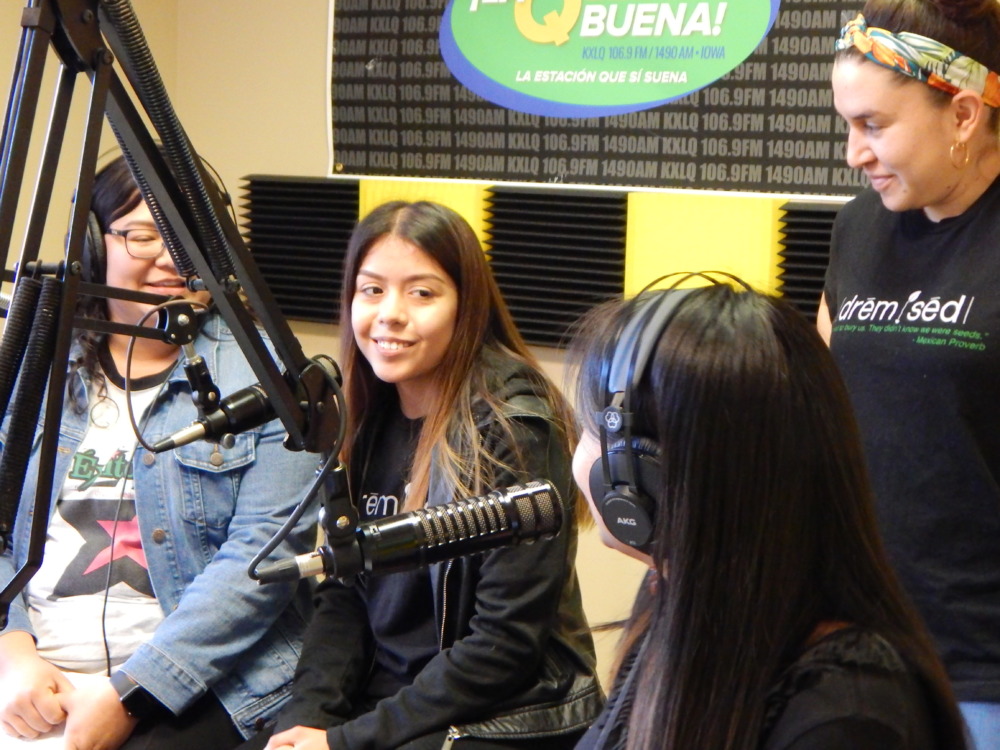The coronavirus pandemic has upended the lives of young people and the programs that serve them, but some out-of-school time organizations have found ways to adapt to meet kids’ new and greater needs.
Al Exito, which means “to success” in Spanish, was originally founded in 2005 at Marshalltown High School in Marshalltown, Iowa, to support Latina students. The nonprofit expanded over the years to include all genders and now serves about 400 students across 33 schools.
 After the pandemic struck, Executive Director Dawn Oropeza said it became clear that in order to support students, the program would have to support their families.
After the pandemic struck, Executive Director Dawn Oropeza said it became clear that in order to support students, the program would have to support their families.
When Latinix families lack funds for food, housing, and other basic needs, their youth often sacrifice their own education to help their parents by working or babysitting, she said.
In response, Al Exito has provided close to $2 million in 68 Iowa counties for food and financial assistance.
“We continue to give,” said Oropeza. “We have expanded our program to serve the community by providing food and funding for struggling families and more mental health services for our youth.”
Al Exito is also continuing its traditional offerings, including weekly afterschool chapter meetings, an entrepreneurship program where students can earn money, organized college visits and a summer camp.
“All of our high school students, starting in ninth grade, can participate in this residential program,” said Oropeza. “Latino college students serve as residential advisors in the dorms.”
Al Exito member Caroly Coronado is in her second year at Iowa State University, majoring in statistics and data science.
Coronado joined Al Exito in sixth grade and helped start a chapter at her college. She said Al Exito has “helped me to know what I want to do and what to do to get there.”
“When I was in sixth grade, we toured Iowa State,” she recalled. “Seeing myself there was impressive.”
Orlando Fuentes, II is a freshman at Drake University in Des Moines, majoring in politics and society, and music performance. The young clarinet player is aiming for a legal career.
He has been an active member of Al Exito since sixth grade. Now he works with high schoolers in the entrepreneurship program.
Fuentes said that Al Exito has “given me a voice of confidence within myself.”
“I’ve been able to speak to people in professional positions,” he said. “It has given me many opportunities for being active in the community.”
Coronado and Fuentes described barriers that make educational success harder for Latinix students to achieve. These barriers ranged from actions of individual teachers to system-wide policies.
For example, Fuentes pointed to blanket attendance policies that he said can set Latinix students up to fail.
“Schools [in Des Moines] de-enroll students if they miss 10 days,” he said. “Many Latinix students have to leave town for family emergencies or when their parents go apply for visas or citizenship, or they have to stay home and look after siblings. When teachers don’t let students take work with them, that sets them back.”
Reflecting on Al Exito’s success, Oropeza said that for many youth, the organization becomes like family.
“We’re addressing their needs and they’re free to be who they are,” she said. “Their traditions and culture are respected.”




























